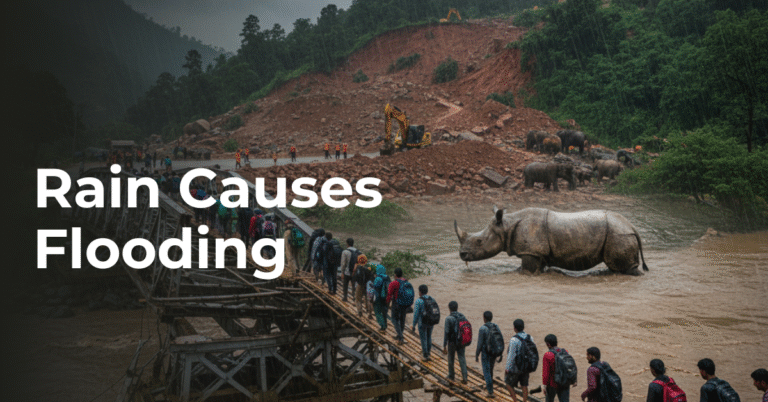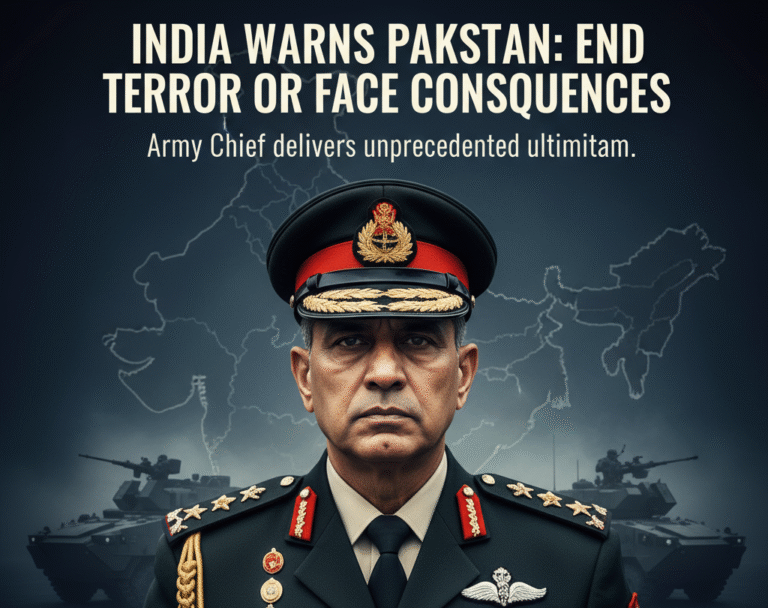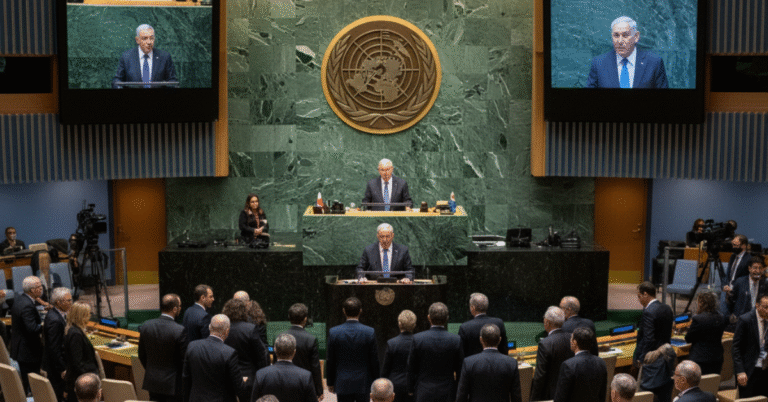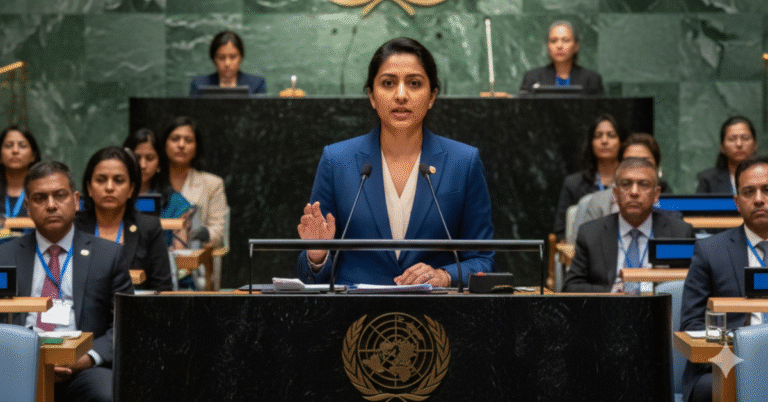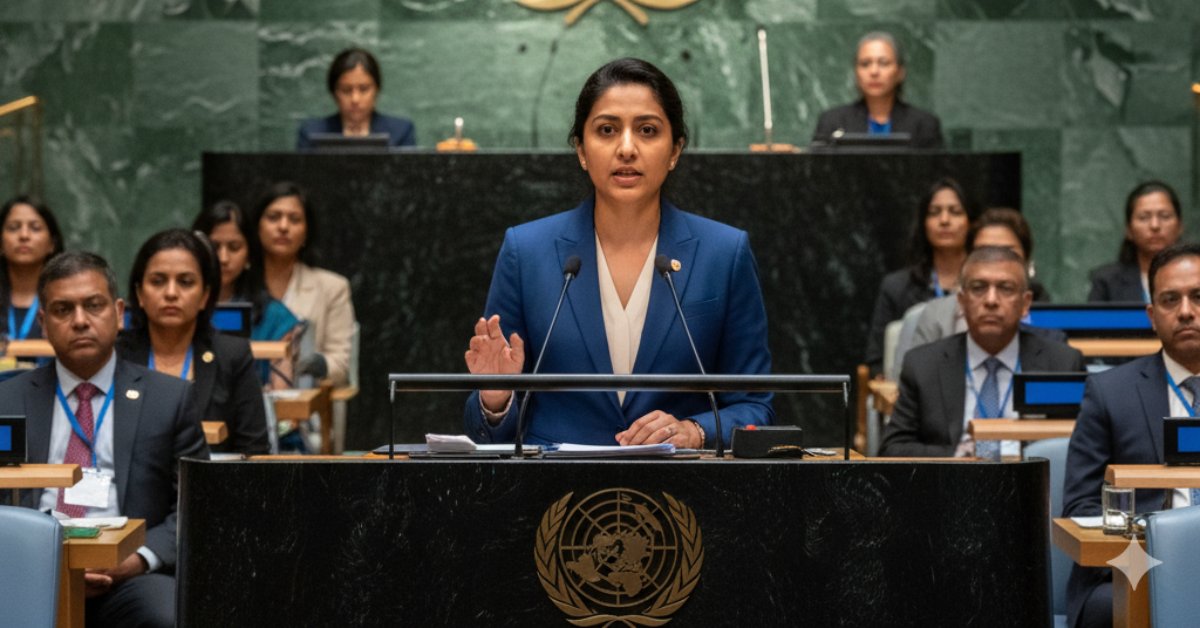
New York City, USA – In a fiery rebuttal at the 80th session of the United Nations General Assembly (UNGA), India lambasted Pakistan for its “absurd theatrics” and glorification of terrorism. The sharp response came after Pakistani Prime Minister Shehbaz Sharif’s address, where he made a series of unsubstantiated claims against India, prompting a powerful exercise of the “Right of Reply” by a young Indian diplomat, Petal Gahlot.
Gahlot’s Takedown of Sharif’s “Bizarre” Narrative
First Secretary at India’s Permanent Mission to the UN, Petal Gahlot, took the floor to systematically dismantle Sharif’s “bizarre” account of the recent conflict between the two nations. She began by stating, “This assembly witnessed absurd theatrics in the morning from the Prime Minister of Pakistan, who once again glorified terrorism that is so central to their foreign policy.”
Gahlot’s address centered on Pakistan’s long and well-documented history of supporting and exporting terrorism. She reminded the international community of Pakistan’s sheltering of al-Qaeda chief Osama bin Laden for a decade, even as it feigned to be a partner in the global war on terror. She also pointed to recent admissions by Pakistani ministers of operating terrorist camps for decades.
“Operation Sindoor”: A Tale of Two Narratives
A significant portion of the diplomatic showdown revolved around “Operation Sindoor,” a retaliatory military action launched by India following a terror attack in Pahalgam, Jammu and Kashmir, that killed 26 civilians. Sharif, in his speech, claimed victory in the ensuing conflict, asserting that Pakistan had shot down seven Indian jets.
Gahlot, however, presented a starkly different picture. She revealed that on May 10th, the Pakistani military had “pleaded” with India for a ceasefire. “The intervening event,” she explained, “was the destruction caused to multiple Pakistani airbases by Indian forces. The pictures of that damage are, of course, publicly accessible. If destroyed runways and burnt-out hangars look like victory, as the Prime Minister claimed, Pakistan is welcome to enjoy it.”
Pakistan’s Duplicity at the UN Security Council Exposed
The Indian diplomat also highlighted Pakistan’s duplicity at the UN Security Council. She pointed out that on April 25th, Pakistan had shielded “The Resistance Front,” a Pakistan-sponsored terror outfit, from taking responsibility for the “barbaric massacre of tourists” in Jammu and Kashmir.
Gahlot emphasized that “no degree of drama and no level of lies can conceal the facts,” and that Pakistan’s attempts to portray itself as a victim of terrorism were a “ludicrous narrative.”
A Call for Action, Not Words
Responding to Sharif’s call for a “composite, comprehensive and result-oriented dialogue,” Gahlot laid out a clear path forward. “If he is indeed sincere, the pathway is clear,” she stated, demanding that Pakistan “must immediately shut down all terrorist camps and hand over to us terrorists wanted in India.”
India also reiterated its long-standing position that all outstanding issues with Pakistan must be resolved bilaterally, with “no room for any third party.” This was a direct refutation of Sharif’s praise for President Donald Trump for his “active role” in brokering a ceasefire.
Who is Petal Gahlot?
The diplomat at the center of this powerful rebuttal, Petal Gahlot, is a career diplomat who has been serving as the First Secretary at India’s Permanent Mission to the UN since July 2023. Her articulate and forceful delivery of India’s stance has drawn widespread praise.
Indus Water Treaty and Kashmir
Sharif also raised the issue of the Indus Water Treaty, accusing India of violating its provisions. India had suspended its participation in the treaty following the Pahalgam terror attack, linking the resumption of the treaty to Pakistan taking verifiable steps to end cross-border terrorism.
The Pakistani Prime Minister also made his customary mention of Kashmir, a narrative India has consistently dismissed as an attempt to divert attention from the core issue of terrorism.
India’s Firm Stance on Terrorism
In conclusion, Gahlot delivered a clear and unequivocal message on behalf of India: “There will be no distinction between the terrorists and their sponsors, nor will we allow terrorism to be practiced under the cover of a nuclear blackmail. India will never bow to such threats. India’s message to the world is clear; there must be zero-tolerance for terrorism.”
The sharp exchange at the UNGA has once again brought to the forefront the deep-seated issues between India and Pakistan, with India firmly placing the onus on Pakistan to take concrete action against terrorism for any meaningful dialogue to take place.
